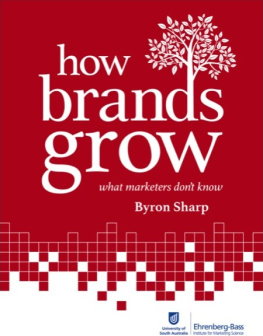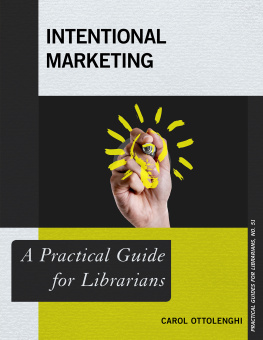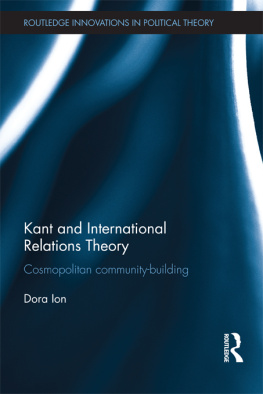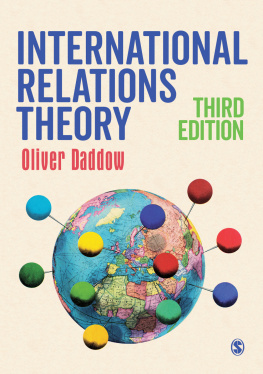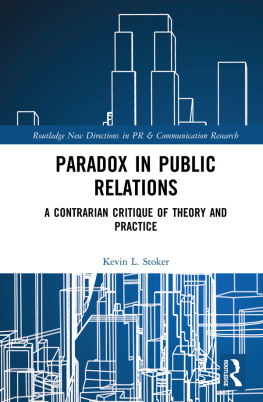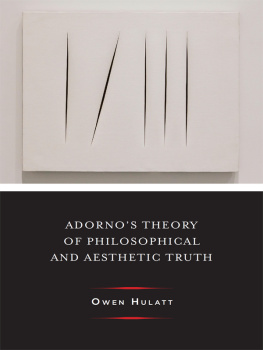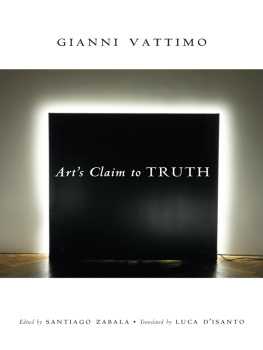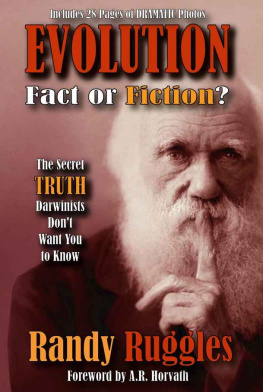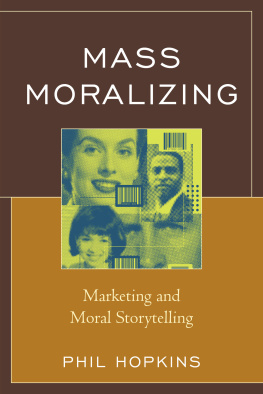Anker - Truth in Marketing : A theory of claim-evidence relations.
Here you can read online Anker - Truth in Marketing : A theory of claim-evidence relations. full text of the book (entire story) in english for free. Download pdf and epub, get meaning, cover and reviews about this ebook. year: 2016, genre: Romance novel. Description of the work, (preface) as well as reviews are available. Best literature library LitArk.com created for fans of good reading and offers a wide selection of genres:
Romance novel
Science fiction
Adventure
Detective
Science
History
Home and family
Prose
Art
Politics
Computer
Non-fiction
Religion
Business
Children
Humor
Choose a favorite category and find really read worthwhile books. Enjoy immersion in the world of imagination, feel the emotions of the characters or learn something new for yourself, make an fascinating discovery.

- Book:Truth in Marketing : A theory of claim-evidence relations.
- Author:
- Genre:
- Year:2016
- Rating:4 / 5
- Favourites:Add to favourites
- Your mark:
- 80
- 1
- 2
- 3
- 4
- 5
Truth in Marketing : A theory of claim-evidence relations.: summary, description and annotation
We offer to read an annotation, description, summary or preface (depends on what the author of the book "Truth in Marketing : A theory of claim-evidence relations." wrote himself). If you haven't found the necessary information about the book — write in the comments, we will try to find it.
Anker: author's other books
Who wrote Truth in Marketing : A theory of claim-evidence relations.? Find out the surname, the name of the author of the book and a list of all author's works by series.
Truth in Marketing : A theory of claim-evidence relations. — read online for free the complete book (whole text) full work
Below is the text of the book, divided by pages. System saving the place of the last page read, allows you to conveniently read the book "Truth in Marketing : A theory of claim-evidence relations." online for free, without having to search again every time where you left off. Put a bookmark, and you can go to the page where you finished reading at any time.
Font size:
Interval:
Bookmark:
Truth in Marketing
Although highly philosophical in nature, this scholarly text is essential reading for senior marketing practitioners, researchers and students. I thought I knew what truth was until I read this book, and while your head will hurt when you read it, it will be good for the world of marketing if you do. In this case the journey through abstract philosophy has concrete implications for the way marketers design their practices. Highly recommended reading (and re-reading).
Linda Brennan, Professor in the School of Media and Communication, RMIT University, Australia
Can we believe the claims that marketers make? Does truth in marketing matter? Apparently not
Despite the role of regulators, marketing claims are often ruled to be misleading, deceptive or incomplete. Surprisingly, scholars of marketing ethics have devoted little time to this key issue. This may be because although key codes of marketing conduct insist on truthful communications, there is only limited understanding of what truthfulness itself actually entails.
This innovative book develops a theory of truth in marketing and discusses the implications for consumers, marketing professionals and policymakers. Focusing on the problem of truth in marketing, it analyses the theory of truth in marketing, and examines the wider significance of marketing truth for society. Using a wide selection of engaging global examples and cases to illustrate this fascinating analysis, this engaging book will provide a provocative read for all scholars and educators in marketing, marketing/business ethics and CSR.
Thomas Boysen Anker is lecturer at the University of Glasgow and holds a PhD in applied philosophy from the University of Copenhagen. His main research interest is business ethics. He is associate editor of European Management Journal and has published widely in international academic journals.
Routledge Focus on Business and Management
The fields of business and management have grown exponentially as areas of research and education. This growth presents challenges for readers trying to keep up with the latest important insights. Routledge Focus on Business and Management presents small books on big topics and how they intersect with the world of business.
Individually, each title in the series provides coverage of a key academic topic, whilst collectively, the series forms a comprehensive collection across the business disciplines.
Careers and Talent Management
A critical perspective
Cristina Reis
Management Accounting for Beginners
Nicholas Apostolides
Truth in Marketing
A theory of claims evidence relations
Thomas Boysen Anker
A Short Guide to People Management
For HR and line managers
Antonios Panagiotakopoulous
First published 2016
by Routledge
2 Park Square, Milton Park, Abingdon, Oxon OX14 4RN
and by Routledge
711 Third Avenue, New York, NY 10017
Routledge is an imprint of the Taylor & Francis Group, an informa business
2016 Thomas Boysen Anker
The right of Thomas Boysen Anker to be identified as author of this work has been asserted by him in accordance with sections 77 and 78 of the Copyright, Designs and Patents Act 1988.
All rights reserved. No part of this book may be reprinted or reproduced or utilised in any form or by any electronic, mechanical, or other means, now known or hereafter invented, including photocopying and recording, or in any information storage or retrieval system, without permission in writing from the publishers.
Trademark notice: Product or corporate names may be trademarks or registered trademarks, and are used only for identification and explanation without intent to infringe.
British Library Cataloguing in Publication Data
A catalogue record for this book is available from the British Library
Library of Congress Cataloging-in-Publication Data
Names: Anker, Thomas Boysen, author.
Title: Truth in marketing: a theory of claim-evidence relations / Thomas Boysen Anker.
Description: Abingdon, Oxon; New York, NY : Routledge, 2016. |
Series: Routledge studies in business ethics | Includes bibliographical references and index.
Identifiers: LCCN 2015049595| ISBN 9781138849198 (hardback) | ISBN 9781315725796 (ebook)
Subjects: LCSH: Deceptive advertising. | MarketingMoral and ethical aspects.
Classification: LCC HF5827.8 .A55 2016 | DDC 174/.4dc23
LC record available at http://lccn.loc.gov/2015049595
ISBN: 978-1-138-84919-8 (hbk)
ISBN: 978-1-315-72579-6 (ebk)
Typeset in Times New Roman
by codeMantra
To my wife
Charlotte
and our children
Samira, Sylvester, Leo and Aviaya
For providing the creative chaos that made this book possible
I would like to thank the editorial team at Routledge. In particular, I am grateful to Jacqueline Curthoys for believing in the manuscript from day one and to Sinead Waldron for all her help and encouragement throughout the entire process.
Thanks also to all my colleagues in the Marketing Research Cluster at the Adam Smith Business School, University of Glasgow, for providing vital feedback on the basic ideas that form the backbone of this book at a research seminar. I would also like to thank Sabina Siebert for reading parts of the manuscript and for always being there to discuss theoretical problems.
I have also benefited from the generous comments of the audience at the World Social Marketing Conference 2015, Sydney, Australia, where I presented a paper on truth in social marketing. That paper was co-authored by Linda Brennan and Dorthe Brogrd Kristensen, to whom I am also thankful for comments, insights and ideas.
Special thanks to John Finch for pointing me in the direction of American pragmatism: more than anyone James, Peirce and Dewey became my strongest inspiration.
We can talk of mind, matter, numbers, time, or of what was, or will be, or might have been, and we can talk of mundane things like snow and penguins. And on all these matters, we can say things that are true, or, of course, things that are not true. So what is truth, if propositions from any sphere of interest can equally share it?
Simon Blackburn and Keith Simmons, Truth
There is universal agreement that truthfulness should be a core principle of all types of marketing communications. One example of the unanimous commitment to truthfulness is the International Chamber of Commerces (ICC) standards of good marketing practice, known as the ICC Code. Since its inception in 1937, the ICC Code has formed the cornerstone for marketing regulation around the globe and is now operating in 35 countries. Article 1 of the Basic Principles of the ICC Code (ICC 2011) states: All marketing communications should be legal, decent, honest and truthful.
Truth in marketing is indisputably a fundamental principle endorsed by all key stakeholders. This observation immediately questions the relevance of this book: why endeavor to develop a theory of truth in marketing when truthfulness already enjoys a central role in marketing regulation?
On the one hand, it is blatantly obvious that truthfulness or rather the lack thereof is a significant problem in marketing practice. One of the most telling recent examples is the VW emission scandal. The carmaker fitted vehicles with defeat devices that could identify test conditions and reduce engine capacity during tests and thereby systematically manipulated emission test results for millions of cars. Greenpeace protesters underlined the problem with graphical clarity: demonstrating outside the German headquarters in September 2015, they were carrying signs with the VW logo and the caption No More Lies (Schluss mit Lgen). It is beyond doubt that truth in marketing is a sizable moral problem. And it is not just an isolated problem correlated with the misconduct of individuals: the VW case demonstrates it to be a systemic problem that sometimes permeates entire multinational corporations. The temptation to deceive even seems to be endemic in that the entire car industry has a history of developing ingenious defeat devices, dating back to the 1970s (Plungis 2015). Yet, the moral problem of truth is not the aim of this book.
Font size:
Interval:
Bookmark:
Similar books «Truth in Marketing : A theory of claim-evidence relations.»
Look at similar books to Truth in Marketing : A theory of claim-evidence relations.. We have selected literature similar in name and meaning in the hope of providing readers with more options to find new, interesting, not yet read works.
Discussion, reviews of the book Truth in Marketing : A theory of claim-evidence relations. and just readers' own opinions. Leave your comments, write what you think about the work, its meaning or the main characters. Specify what exactly you liked and what you didn't like, and why you think so.


